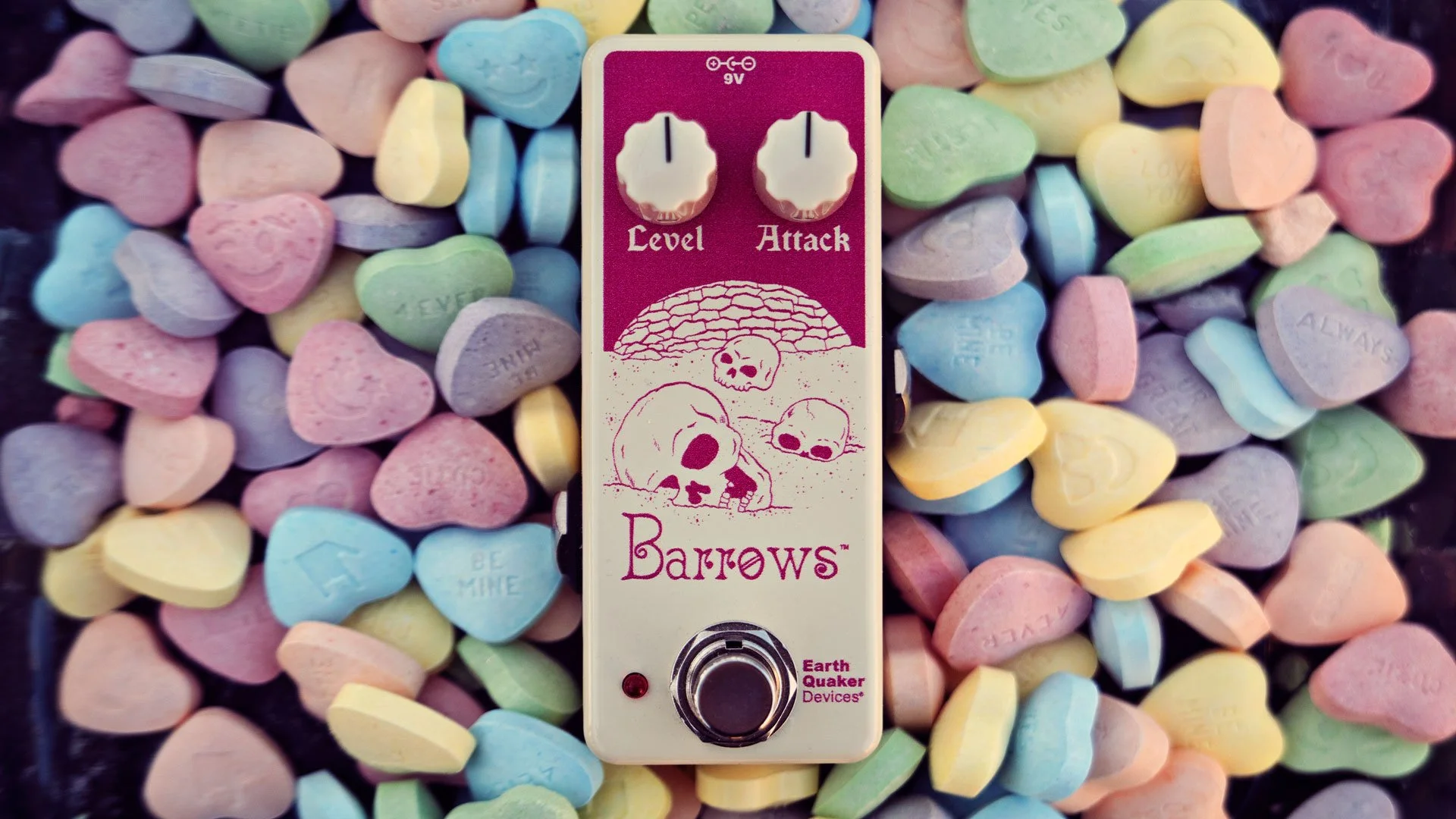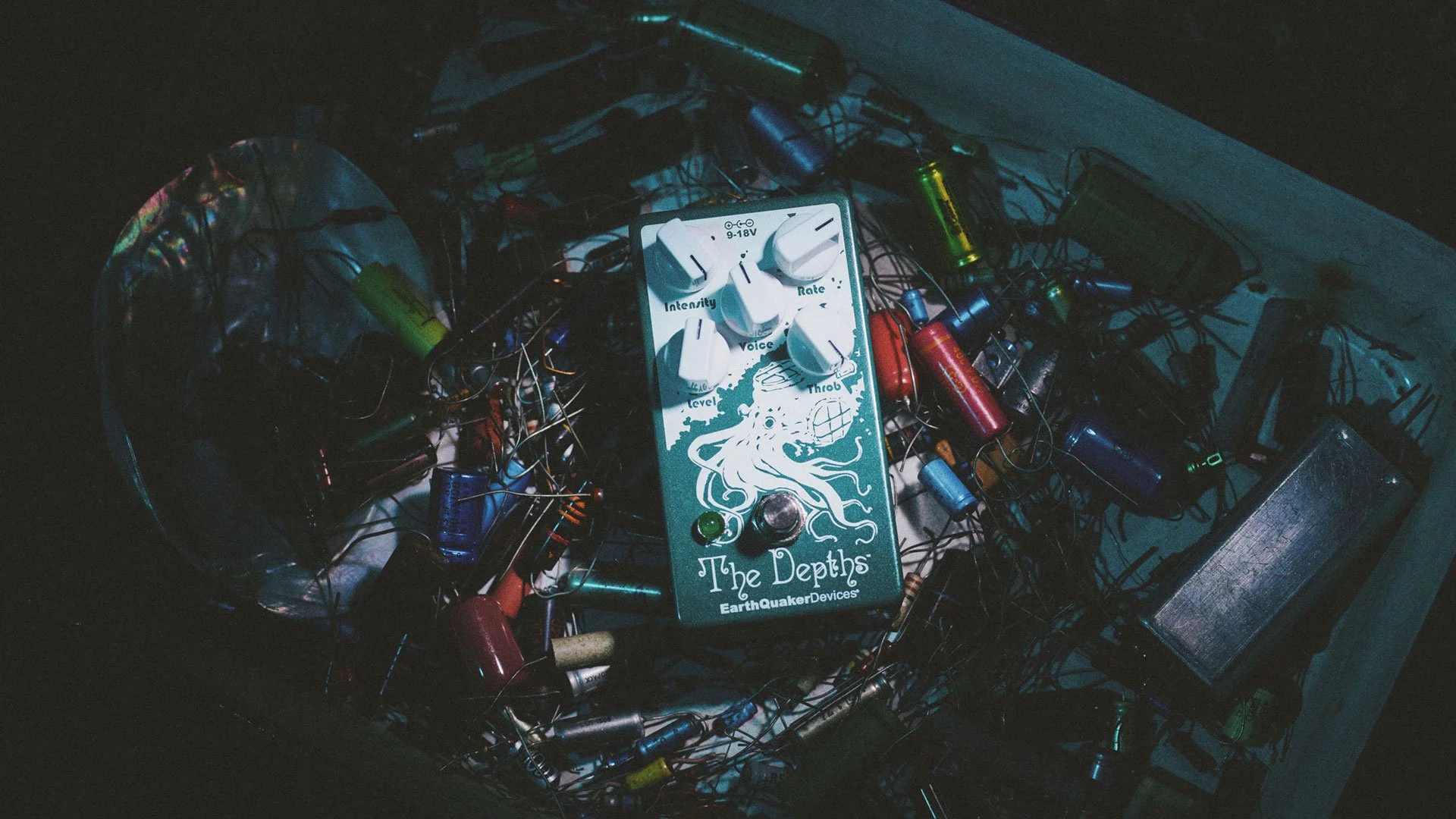Talk About Your Junk : Rob Schnapf
Malcolm X Abram
Throughout February, EQD's "Show Us Your Junk!" video series is showcasing the "Rock Block," an actual city block in Los Angeles' Silver Lake neighborhood that houses the studios of veteran producers, mixers, and musicians Aaron Espinoza (The Ship), Rob Schnapf (Mant Sound Studios) and Dave Trumfio (Kingsize Soundlabs). The fourth member, Manny Nieto, has since moved his Suplex Audio to a new location, but we've included him because Manny was the first to find and build a studio in that location. As an addendum to the "Show Us Your Junk!: Rock Block" series of videos, we asked each producer to answer a few more questions highlighting their methods, professional histories and to share a bit more of their cool gear collections.
Rob Schnapf has a lot of junk.
Cool junk.
Rob has been using his vast and growing array of cool junk to make awesome records with creative people for two decades. Early in their careers, Rob and former production partner Tom Rothrock worked out of the Record Plant's sub studio, the "Micro Plant," then moved to Sunset Sounds before eventually opening his Mant Sound Studios in the Rock Block. In the early 90s, Schnapf, Rothrock, and partner Bradshaw Lambert founded the indie label Bong Load Custom Records. The small label known for releasing records in small batches was quickly thrust into the national record industry consciousness when they recorded local singer/songwriter Beck Hansen's catchy hip hop-folk flavored single "Loser." Schnapf would continue to work with Beck on his hit records, including Mellow Gold and Odelay. In its 25-year history, Bong Load Custom has released high-quality special edition vinyl records by several artists, including desert rockers Kyuss, beloved singer-songwriter Richard Thompson, The Killers, and Rob's friend Elliot Smith whom he also produced.
Rob's resume of recording, producing, and mixing includes Kurt Vile, The Foo Fighters debut album, Guided By Voices, Cat Power, legendary soul organist Booker T. Jones with whom he won two Grammys for Best Pop Instrumental Album, and singer Mavis Staples with whom he earned another Grammy nomination.
After showing us the awesome junk populating Mant Sound Studios, Rob kindly answered a few more questions about his history, methods, and some of his favorite junk.
EQD: You started learning about recording in college. What initially attracted you to the recording process? Were you one of those kids that took apart every electronic device in your house?
Rob Schnapf: I was always interested in records since I was a kid. We had a 45 player. My sister was a Beatles fanatic. And these 45s were kind of magical. So much vibe coming off this small record. It was a mystery and voodoo. However, since my father was a recording engineer in Manhattan and while "it" remained a mystery, I knew that it was attainable in some way. My father revealed very little about the process but just knowing he did this for a living demystified it some.
I did tinker, but I can't say I took everything apart. I was always playing with a reel-to-reel and making tapes.
EQD: How important a factor for you and Tom's growth was having access to the Micro Plant in those early days? Do you recall any particular "ah-ha!" moments or big lessons that you've carried with you throughout your career?
RS: The Micro Plant was huge for us. We had ideas about production and knew we wanted to make records. The access to this studio allowed us to experiment and also shortcut the traditional trajectory in the studio of runner to assistant to engineer etc. The Micro Plant was where I learned that aesthetics and song sensibility are transferable to all musical forms.
Tom was working on a speed metal band from the Valley and asked if I would help him. I was not into it, but he insisted I come help him. It was a fantastic lesson. I helped arrange the song and shape guitar solos, and this had nothing to do with my personal feelings about the genre. This was just musical sensibility. Lightbulb went off. It's all music.
EQD: Though you are an anti "gear fetishist," you have a LOT of gear. Do you scour Gbase/Reverb/eBay and check every pawn shop in whatever city you’re visiting or do you shop with specific needs in mind?
RS: Everything is too expensive now. I feel bad for everybody getting into the game now. Prices are insane. I'm mostly into the new boutique manufacturers these days. Coil Audio, Highland Dynamics, Stager, CAPI, Avedis, Heiserman. A lot of people building legitimate cool stuff. But I'll still kill some time on reverb and eBay.
EQD: When did you settle on your preferred recording method of "one song at a time"? Do you find bands often prefer that method to the more Mutt Lange-style of meticulous layering of perfect takes?
RS: It's really about serving the project in whatever manner is necessary. What (one) song at a time does do for you is, first of all, let you know what your record is sooner rather than later. Taking a song all the way through to a good rough mix, and after a week or so, you have a bunch of good roughs. It starts to take shape.
It prevents you from having a record with all one sound as you aren't cutting the guitars all in the same day on the whole record or whatever. You aren't singing all the vocals at the end and trying to shoehorn them into a bunch of overdubs etc, etc. Get the vocal on sooner rather than later and let that inform the song.
EQD: You have a lot of vintage amps/instruments. Are you in the "vintage has more sonic mojo" camp? If a band comes in with Guitar Rig and a bunch of VST instruments, are you all in on the digital stuff, or would you suggest they check out your gear rooms?
RS: Whatever it takes. No rules, really. If it sounds good, it is good. I think there is inspiration in great playing and great-sounding instruments. So it's nice to know I got a good fallback plan.
EQD: Is there a piece of vintage or new gear that you covet?
RS: An old (Neumann) 67. A new Heiserman 47.
EQD: What's your favorite piece of gear you own?
RS: Hmmm. Hard to pick.
EQD: Some of your peers have talked about the psychological aspect of producing a record. Do you have a template or standard questions you like to ask an artist or band before working with them?
RS: Not really, everybody is different and everybody needs something different. So it's more about figuring that out.
EQD: I'd imagine working on a record with someone like Booker T. Jones is a very different experience and requires different psychological methods than recording Guided By Voices. Do you adapt your approach to the folks you're working with..i.e., do you try and figure out who needs to be challenged versus coddled and/or encouraged to try something new?
RS: Like I said, everybody is different and/but I don't have a playbook to operate out of. It's all song driven. Talking about songs and working on them. That informs everything. So I don't really see it as coddling or challenging. If the songs need work, we're gonna work on them. If they're good to go, we're gonna work on them.
EQD: Is there something special about the Rock Block days having your studios so close together? A community within the music community? A Producer Brotherhood? Just some convenient locations?
RS: It's nice going out back and bumping into other people. Creates a community and sometimes a synergy. Borrow coffee or the good tambourine or that midi cable you can't find or a Modelo.
EQD: There's a generation of young music listeners who have grown up on bedroom/garage produced, Spotify/iTunes compressed music, and everyone has a DAW on their phone now. What would you say are the advantages of recording in a studio, even for those folks doing the "one-person digital band-in-box" thing?
RS: It's not so much a studio thing as it is a quality thing. So if you can get that at home alone, great.
EQD: Have you ever used that Pickle Steel on a record?
RS: Just fucked around with it but never actually made the cut. So the EQD SUYJ is its recording debut.
Malcolm X Abram is a recovering reporter and music writer and a proud 40 year guitar noodler. He lives, works and plays in the bucolic dreamland of Akron, Ohio in an old house with two dogs who don’t really like each other and way too many spiders.






